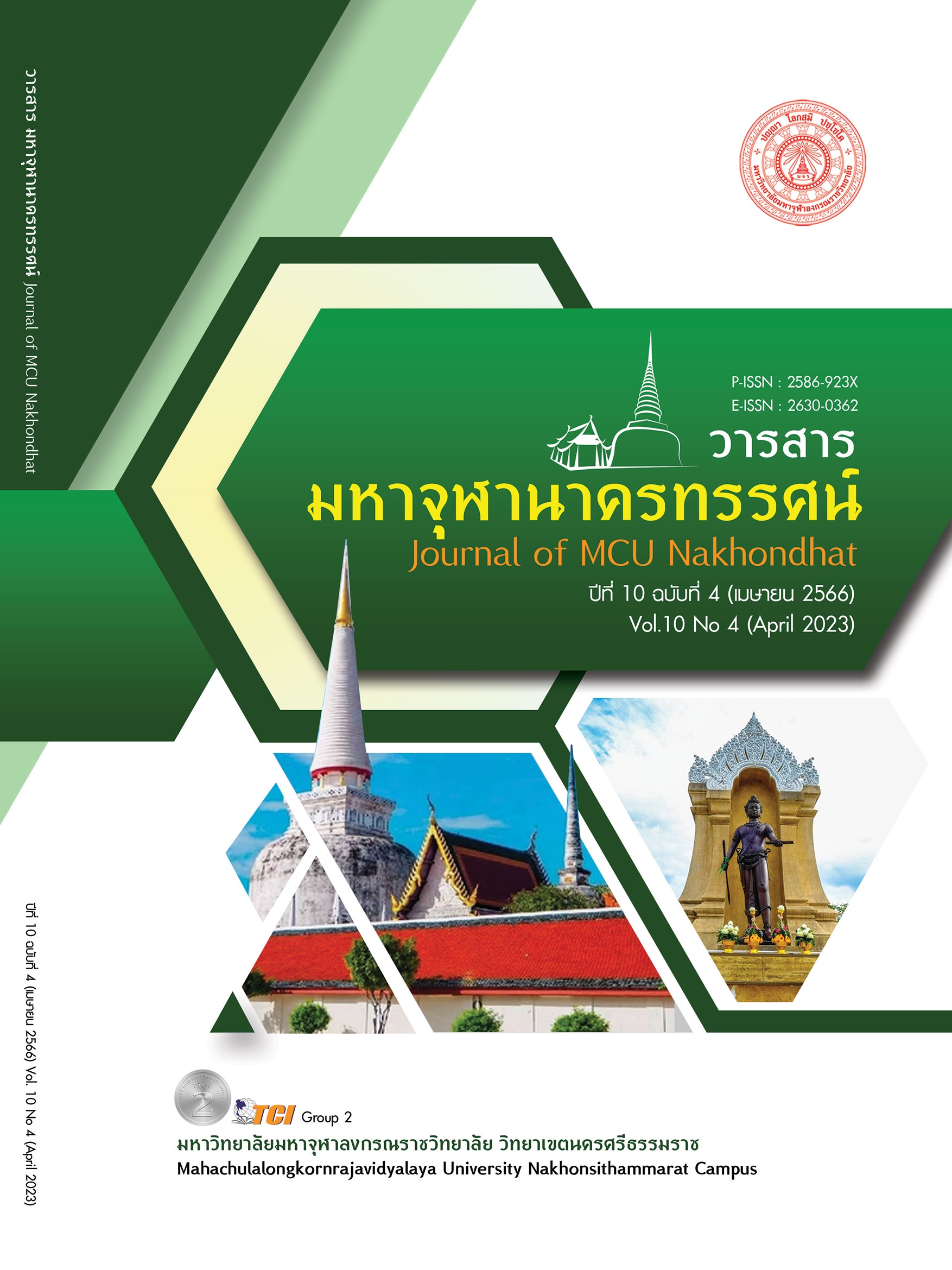PROBLEMS PROTECTING THE RIGHT TO CRIMINAL PROSECUTION AGAINNST THERAVADA MONKS IN THE COUNTRY
Main Article Content
Abstract
The aim of this study was to investigate problems related to Violating the rights of monks of government officials on the issue of the appropriateness of section 29 and section 30 of the Sangha Act, B.E. 2505 to enforce in the case of monks giving up the clergy, which measures and solutions to the problem are not yet can operate effectively. It is documentary research by studying documents, The results showed that before there was an administrative court, there was a lawsuit that exercised the powers of the Sangha Act B.E. 2505 between the Buddhist organizations themselves. and Buddhist organizations with other individuals and agencies to the Court of Justice which the Court of Justice accepted the request for consideration until the order and judgment of the Supreme Court Makes that before the court ruled the exercise of power under the Sangha Act BE 2505 was still controlled by the Court of Justice. But the condition of the problem that arises after the Administrative Court is The Administrative Court did not accept the request in such case for consideration according to the Supreme Administrative Court's Order No. 1/2454 and No. 4/2545, arguing that “Sangha or Buddhist organizations have a proper and systematic process of healing and creating justice within the organization. The Administrative Court does not have to control the exercise of such power.” It is worth noting that the Administrative Court did not distinguish the action of the case into two areas, namely the one that relied on the discipline in particular. which the Administrative Court should not enter and control but in the land of the Sangha Act, 1962, the Court of Justice cannot deny access to control and check at all because it is an exercise of the legal powers of the governing body.
Appropriate solutions and measures to protect Buddhism Section 29 and Section 30 to prevent the investigating officer from exercising his unilateral and inappropriate discretion. In the event that the case is not yet final, it is strictly forbidden. And should set up a clergy court to consider cases together with the civilian side like the military's constitutional court. To create justice for the accused and to prevent those who do not wish well to Buddhism use the gap of the law to take advantage. It is also a counterbalance to use the power of the state more effectively.
Article Details

This work is licensed under a Creative Commons Attribution-NonCommercial-NoDerivatives 4.0 International License.
References
กิตติพงษ์ กิตยารักษ์. (2544). ยุทธศาสตร์การพัฒนากระบวนการยุติธรรมเพื่อคนจน. เรียกใช้เมื่อ 10 เมษายน 2565 จาก http:www.geocities.com/rightfreedom/academic
ชำเลือง วุฒิจันทร์. (2525). การพัฒนากิจการคณะสงฆ์และการพระศาสนาเพื่อความมั่นคงของชาติ. กรุงเทพมหานคร: กรมการศาสนา กระทรวงศึกษาธิการ.
ณรงค์ ใจหาญ. (2546). “การให้ความช่วยเหลือทางกฎหมายแก่ผู้ต้องหาและจำเลยในคดีอาญา”. ใน รายงานการเสวนาทางวิชาการ เรื่อง การช่วยเหลือทางกฎหมายแก่ผู้ต้องหาและจำเลย. กรุงเทพมหานคร: เนติบัณฑิตยสภา.
ปกป้อง ศรีสนิท. (2563). สิทธิมนุษยชนในกระบวนการยุติธรรมทางอาญา. กรุงเทพมหานคร: สำนักพิมพ์วิญญูชน.
พระราชบัญญัติคณะสงฆ์ พ.ศ.2505 (ฉบับที่ 2 แก้ไขเพิ่มเติม พ.ศ. 2535). (2535). ราชกิจจานุเบกษา. เล่ม 109 ตอนที่ 16 (4 มีนาคม 2535) .
รุจิระ บุนนาค. (2561). คดีอาญากับการสละสมณเพศ, หนังสือพิมพ์แนวหน้า, หน้า 14. เรียกใช้เมื่อ 10 เมษายน 2565 จาก https://www.naewna.com/business/ columnist/35878


